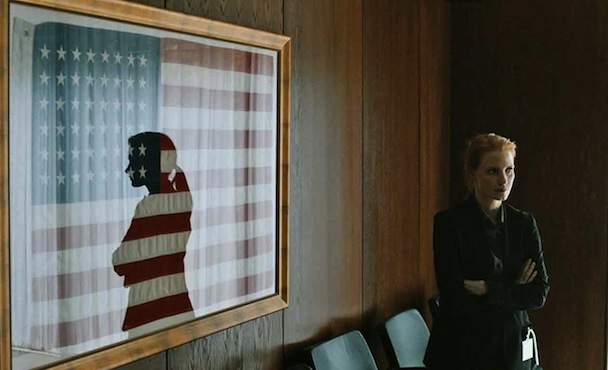Zero Dark Thirty
Win tickets to see the film that everyone has an opinion on.
Overview
American historical drama gets so contemporaneous as to become current affairs with Zero Dark Thirty, the film about the CIA's hunt for and killing of Al-Qaeda leader Osama Bin Laden.
Director Kathryn Bigelow and writer Mark Boal, who worked together on the Oscar-winning Hurt Locker, reunite for another epic about a different type of war. It starts in 2001, when two planes hit the World Trade Center, and chilling documentary footage recalls the pain caused that day. Two years later, rookie Maya (Jessica Chastain) is sent to join a specialist team at a CIA black site in Pakistan, where a detainee, following torture and deception, discloses the name Abu Ahmed. Operations come and go for the next eight years, but Maya comes to fixate on that one name, whom she believes to be Bin Laden's right hand.
Zero Dark Thirty is stunningly well made, with a controlled level of tension that works on a scale of high to higher. It remains nail-bitingly riveting over two hours and forty minutes. Interestingly, the structure is almost like three films, or at least, a film with three clearly defined acts. Each passing act (complete with the appearance and disappearance of its own high-calibre cast, including Jennifer Ehle, a buff Chris Pratt, Joel Edgerton, and James Gandolfini) reinforces the intensity of Maya's perseverance, her lonely state of being in the right.
The film has won widespread acclaim from critics, but from reading the news, you'd think everyone hated it. Many from the American right have criticised the film for its having supposedly improper access to classified documents and glorifying Obama, and many from the left have slammed it for advocating torture. Both stances seem an overreaction.
Zero Dark Thirty does depict "enhanced interrogation techniques" — torture, to you and me — happening during the Bush administration, and it also depicts that torture was a favoured tactic of the CIA operatives you get to know here. That's probably accurate. Its attraction to these people in the field is the feeling that they're doing something and of expediting processes when delay can be fatal. The film also shows some of the problems with torture: it yields useful but also false information, and the act is viscerally depraved (even if it's not totally possible for the audience to sympathise with a tortured character whom we only see as dehumanised).
The issue isn't that the filmmakers support torture, but that in Zero Dark Thirty, as in The Hurt Locker, they're concerned with hyper-positioning viewers into the perspective of American martial figures. They want you to feel their fear, sacrifice, and bravery — not for a moment the fear, sacrifice, or bravery that could be reflected back at them by the enemy. Many of us prefer to see films that have a different, more challenging purpose, but you can't deny that what Zero Drk Thirty sets out to do, it does excellently.
Concrete Playground has 10 in-season double passes to give away to Zero Dark Thirty. To be in the running, make sure you're subscribed to our newsletter and then email [email protected] with your name and address.





